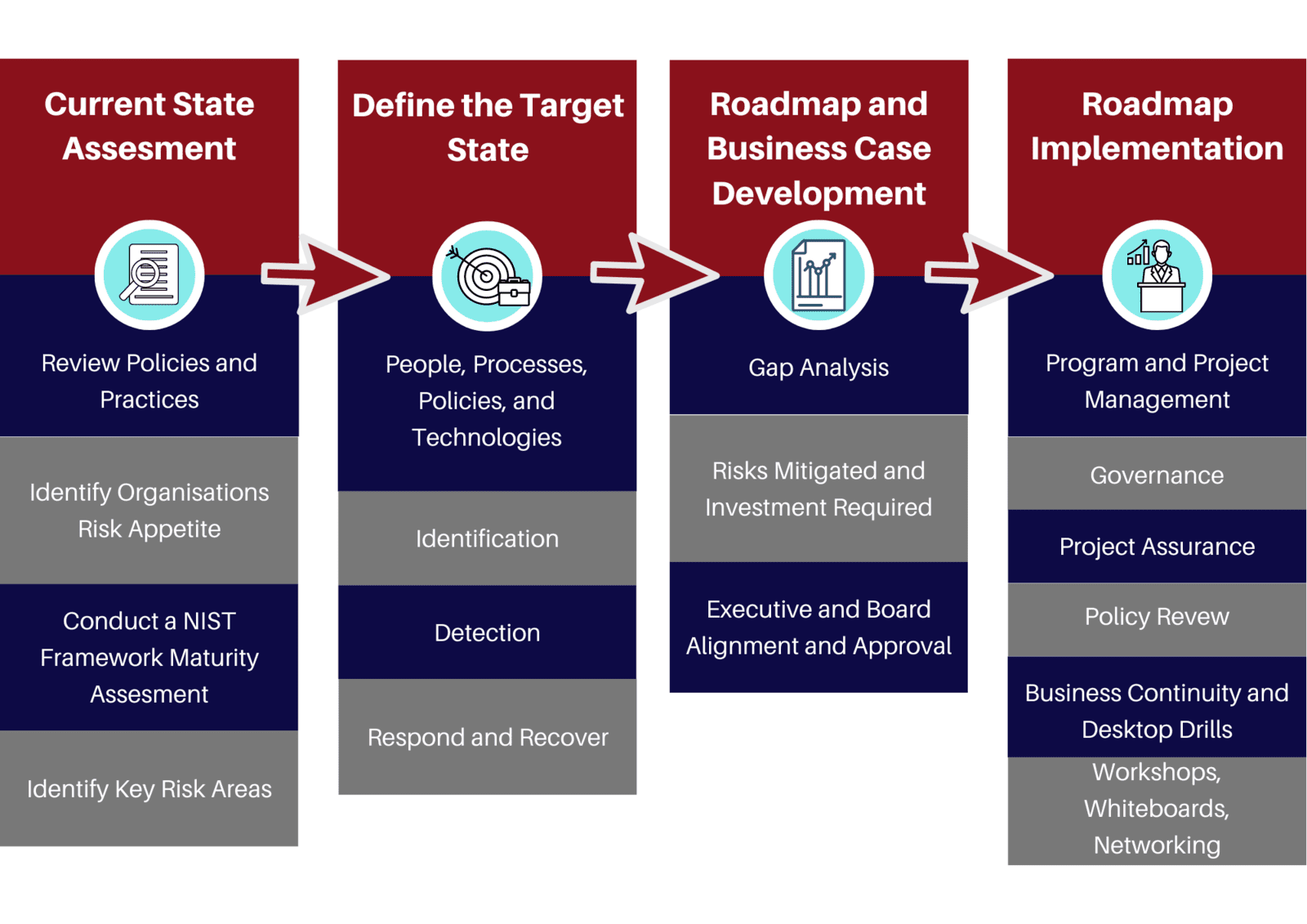IBRS Service Pack
Building Organisational Cyber Resilience
Building Organisational Cyber Resilience
With an ever-increasing number of cyber-related incidents, cyber security risk has evolved from a technical risk to a strategic enterprise risk. Cyber attacks are now being perpetrated by well resourced criminal syndicates and increasingly, state actors. At the same time the risk of a compromise for most organisations is increasing with the acceleration of digital transformation, adoption of technologies such as Cloud services, analytics and IOT. The threat landscape is further compounded by increased regulatory and compliance requirements.
Recognising the that a cyber compromise is almost inevitable organisations are now focusing on improving the resilience of their organisation to a cyber incident. Most organisations now have cyber resilience programs in place which not only protect and defend their key information assets but are also well placed to respond should a cyber incident occur.
Our Cyber Strategy, Roadmap and Implementation Advisory are designed to assist on your Cyber Resilience Journey
 Top 5 lessons learnt in cyber security - IBRS observations 2020
Top 5 lessons learnt in cyber security - IBRS observations 2020
| Lessons Learnt | Comments |
| 1.Engage at board level |
|
Adopt a cyber resilience framework or standard |
|
Identify critical information assets and where they are located |
|
Recognise the current threat landscape |
|
| Develop a Cyber Incident Response plan |
|

Dr Philip Nesci
"Cyber incidents and the protection of information have now taken enterprise and national significance. Organisations will need to learn how to operate securely in a zero trust world."
IBRS Observations 2020
- According to the UK government’s Cyber Security Breaches Survey 2019 the most common types of cyber incidents include:
- Phishing involved in approximately 32% of data breaches.
- Ransomware attack.
- A DDoS (distributed denial-of-service).
- Various types of malware such as drive-by attacks through the Internet Browser, zero-day attacks and SQL injections.
- Accidental or deliberate loss of information assets, sometimes from an internal actor.
- A cyber security incident can have catastrophic impact on an organisation, ranging from costs of business interruption, loss of trust from key stakeholders, diminished brand value, long term profitability and financial penalties for data privacy breaches.
- Cyber security is a top business risk that requires board focus and the Australian Government has elevated it to the national agenda with the recently released cyber security strategy.
- A well developed and regularly exercised Cyber Incident Response Plan is critical for organisational cyber resilience and response. While an incident in reality evolves differently from established plans, a well-executed response can dramatically limit the damage and improve the recovery time of an incident.
To get you started on your journey IBRS would like to offer you a download of our Advisory paper: Improving your organisations cyber resilience

